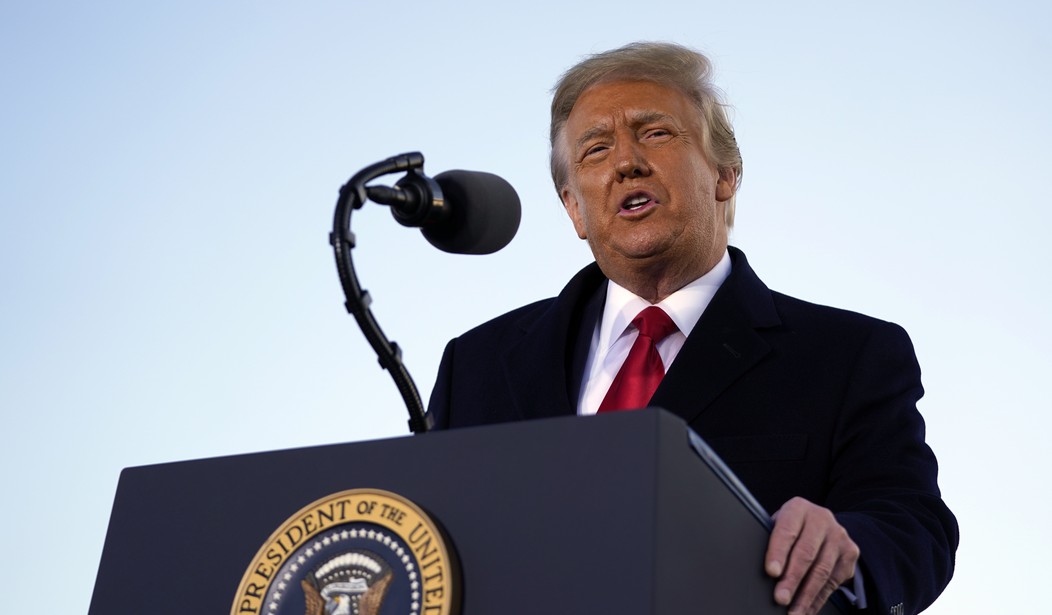The Republican Party’s so-called identity crisis post-2020 falls more into the category of the figurehead than policy. It’s all about who gets credit for any future, and in some cases past, success.
Take the current ”brouhaha” regarding former President Donald Trump and Senate Minority Leader Mitch McConnell. Trump’s caustic language about the Kentucky Republican at a GOP donor retreat focused more on loyalty versus policy disagreements. His rant, if The Washington Post and Newsmax are to be believed, is more about Senate Republicans upholding the Electoral College in last year’s election.
Let’s not forget McConnell agreed with Trump regularly from 2017 to 2021 with the Senator voting twice to acquit during Trump’s impeachment trials. He toed the line in 2019 suggesting Democrats kept trying to re-live the 2016 election with their constant hammering of the president. McConnell backed Trump’s judicial picks including a willingness to put his hypocrisy on display regarding U.S. Supreme Court picks during an election year. He even slipped Section 230 repeal into a coronavirus relief package. Both politicians defended massive increases in federal spending despite promises of fiscal restraint.
The pair may not have liked each other, but their agendas mostly aligned. Trump just can’t get over January 6th and McConnell’s so-called disloyalty. Hence the weekend rant, although Trump called for Republican unity. No doubt unity around him if he makes another presidential run.
Those defending McConnell see their future at stake, as well.
”[W]e have to embrace the Constitution and we also have to put forward positive solutions,” Wyoming Congresswoman Liz Cheney told CBS’ Face the Nation on Sunday while suggesting Trump’s rhetoric is one of insurrection. ”We’ve got to be the party of hope, of aspiration, of inspiration. The party that recognizes and understands that, you know, that the taxes need to be low. The government needs to be limited in size, strong national defense, those substantive things, not the party of- of insurrection.”
Similar comments came from outgoing Arkansas Governor Asa Hutchinson, although not as direct in displeasure towards Trump.
”Well, anything that’s divisive is a concern and is not helpful for us fighting the battles in Washington and at the state level,” Hutchinson said on CNN’s State of the Union before pivoting towards an end to Republican factionalism. ”In some ways, it’s not a big deal, what he said, but, at the same time, whenever it draws attention, we don’t need that. We need unity. We need to be focused together. We have slim majorities — or slim numbers in Washington, and we have got battles to fight. So, we need to get beyond that.”
Note the calls for Republican unity from Cheney and Hutchinson, along with a unity plea from South Dakota Senator John Thune on Fox News Sunday. All three backed Trump in 2016 with Hutchinson using the phrase, ”you vote for a team.” Cheney defended Trump during this 2019 impeachment and held a 92.9% Trump Score at FiveThirtyEight. Thune’s at 91.4, for those wondering. The voting disagreements are on a couple of fiscal bills and a foreign policy move or two, but nothing suggesting disloyalty. January 6th was too much for Cheney and possibly other Republicans. However, this is the same GOP willing to ignore fiscal restraint and smaller, restrained government while in power. They’re no Justin Amash.
The current Republican infighting, if you want to call it that, is really about who gets the credit for future success and power. Liz Cheney is House Republican Conference Chair and may have her eyes on rising further on the Hill in leadership. If she survives next year’s GOP primary. John Thune may run for re-election next year and is entrenched as Senate Minority Whip. Why not remain part of McConnell’s inner circle? Asa Hutchinson is being pressed on a presidential run and could be in a future Republican White House cabinet. Trump wants to play kingmaker if not run for president in 2024. All four have similar views except Trump is more malleable on foreign policy depending on the person whispering in his ear and lavishing public praise.
It’s a game of thrones or song of fire and ice depending on point of view. Thune and Hutchinson all want to freeze GOP unity as it currently sits. Cheney and Trump desire loyalty, as well, but hope to burn those who are either too loyal or not loyal enough.
One thing is certain: Republican politicians want unity. They just want to be the ones getting credit when the unity turns into electoral victories.









Join the conversation as a VIP Member